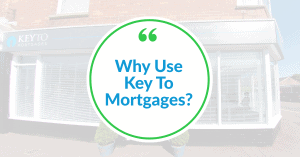The recent rate rise was a timely reminder that the current very low interest rates are unlikely to last forever. Although the Bank of England predicts that further interest rate rises are likely to be small incremental steps, it makes sense to review your household expenditure now, to ensure you’ve budgeted for an increase in costs such as mortgage repayments.
Many homeowners have already taken advantage of competitive 2, 3, and 5-year fixed rate deals.
Unsurprisingly, this type of deal made up 90% of mortgages taken out in the first quarter of the year. If your current deal is coming to an end, or it’s been in place for a while, this could be a good time to review your mortgage.
Your home may be repossessed if you do not keep up repayments on your mortgage.
HOW TO SELL WHEN HOUSE PRICES FALL
Estate agents report that the housing market is showing signs of slowing, with four-fifths of properties now being sold for less than the asking price. House prices fell by 0.5% in August, according to Nationwide. This is the largest monthly drop since July 2012 and is likely to be due, in part, to uncertainty surrounding how Brexit negotiations will play out over the coming months.
So, if you’re trying to sell your home, what steps should you take to make your property attractive to buyers?
Good housekeeping pays
As all those TV programmes never tire of telling us, a well-presented property will be much more attractive to buyers. Make sure your house and garden are tidy, the windows are clean, and the house smells fresh. Buyers can be put off by strong colours and dated décor, so it can pay to consider some cosmetic changes before you put your property up for sale.
Buyers often tour the neighbourhood before arranging viewings, so the kerb appeal of your property really matters. Get professional photographs taken, and if you’re selling a family home, don’t forget to include shots of the garden, as this can often be a major selling point.
Price realistically
Over-pricing can lead to low levels of interest in your property, whereas offering your home for sale at a realistic figure is likely to entice more potential buyers. This can lead to an increase in the amount offered. If several people are interested, you may find that you get bids over your asking price.
Organise your paperwork
Make sure that you have a file of important documents like window guarantees, certificates for gas and electrical work you’ve had done, any planning permission for extensions you’ve had built, council tax bills and other bills that show what the running costs of your home are. That way, you look organised to a potential buyer, and having this information to hand will enable your solicitor to leap into action if you get an offer.
Get your mortgage sorted
If you’re selling and buying, it makes sense to speak to us to get your mortgage arrangements sorted out in plenty of time. That way, you won’t face hold-ups later on. Instruct a solicitor
Many sellers don’t instruct a solicitor or licensed conveyancer until they have a sale agreed. However, it will speed up the process considerably if you instruct a lawyer before you put your property on the market. They can carry out tasks like locating the property deeds.
Being well-prepared means that the process between offer and exchange can be sped up, making it less likely that the buyer will get cold feet because of delays or problems with paperwork.
Your home may be repossessed if you do not keep up repayments on your mortgage.
IF YOU LOST YOUR INCOME…
Would you need to sell your home? One in eight people questioned for a recent survey thought they would need to take this drastic step if they were to lose their regular income.
Figures from the Office for National Statistics show that the proportion of UK residents’ disposable income that goes into savings, has fallen to a record low, meaning that fewer people have an emergency fund that they can dip into if they were suddenly to find themselves out of work.
A recent survey from Zurich insurance found that a third of people are concerned about their finances, reporting that they don’t feel financially resilient. Worryingly, 26% expressed the opinion that they would need to sell their possessions if they faced an unexpected loss of income.
Finding a cheaper rented option, was the solution that 14% said they would opt for. Worse still, 13% expressed the view that they would have to sell their home.
According to data from the Association of British Insurers, each year in the UK, one million people find themselves unable to work due to a serious illness or injury. This is where income protection insurance comes in, and has a major part to play in helping families pay their bills at a difficult time.
Income protection cover
So, if you couldn’t work for several months due to illness or injury, how would you manage financially? Whilst you might have enough savings to tide you over for a short period off work, if it went on for longer, you might find it a struggle to meet mortgage payments and other regular household bills.
Income protection policies not only meet the needs of families who want to protect their regular expenditure, and homeowners with monthly mortgage payments, they also provide valuable peace of mind to self-employed people whose incomes depend on their ability to work, and employees who receive limited or no sick pay from their employers.
How policies work
These policies are designed to pay out if you’re not able to work and earn money due to illness or injury, and, in some cases, forced unemployment.
The maximum amount you can claim is usually your net monthly earnings after tax, minus any state benefits you may receive. The amount payable under the policy could be around 65% of your gross earnings and is usually tax free. Cover can also include a lump sum payable on death, or hospitalisation benefits.
Policies pay out following your chosen deferred period, typically between four and 52 weeks, and can continue until you return to work, or the policy expires at the end of a fixed period.
As with all insurance policies, conditions and exclusions will apply.
GAZUMPING, GAZUNDERING & GAZANGING
Gazumping happens when you’re buying a property and can occur at any time up until you exchange contracts. It involves the seller pulling out because they’ve received a better offer from another buyer. It’s disheartening, especially if you have instructed your solicitor and the paperwork and searches are underway. You’re likely to end up out of pocket.
Sadly, gazumping is legal; the seller is under no obligation to sell the property to you until contracts have been exchanged.
Gazundering
Here, your purchaser decides to drop their offer just before you’re due to exchange contracts. This means you are faced with accepting their reduced offer or allowing the sale to fall through. Either way, this can be a costly decision.
Gazanging
When this happens, it basically means that the seller leaves the buyer in limbo. With the property market experiencing a slowdown, it’s not uncommon for sellers to get cold feet and decide, despite indicating that they’ll accept your offer, to pull their property off the market before you reach the exchange of contracts stage. If this happens, you’re back to square one, and you may have already incurred costs too.
Recent research shows that 55% of all Brits strongly support the introduction of new legislation to prevent gazumping.





